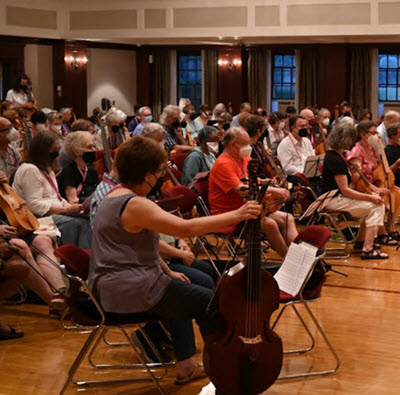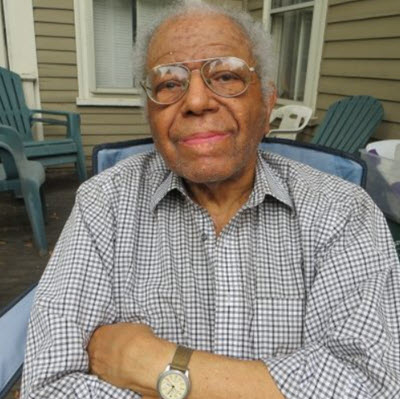by Toni Codinas
Published November 13, 2023
Visiting musicians are working musicians. To give their best performance, their needs and comfort must be paramount.
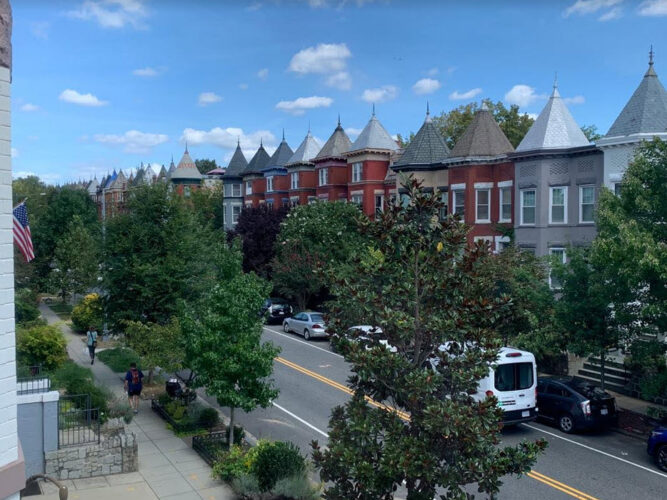
One of my favorite perks of serving on the board of the Washington Bach Consort is the opportunity to host out-of-town musicians for our concerts. Opening our home to visiting artists has been very rewarding: it offers us a behind-the-scenes view of a musician’s life; we learn about what’s going on in the regional music scene; and we talk and exchange ideas about music, travel, food, and life. Most importantly, under the best circumstances, their visit might create a personal bond and help nurture a sense of community — for all of us.
However, hosting musicians is not like hosting your cousin or a visiting old friend. Musicians come to us on a work trip. They typically have long days full of music-making, as well as their own professional and social obligations. Some of them need to clear their heads after rehearsals and performances. Others bury themselves in study, or practice their instrument while they’re here, perfecting their craft. Everyone handles the satisfaction and stress of the job differently. Many of them are on the road a lot, and one key source of stress is being away from home.
As hosts, our aim is to make their stay as easy and comfortable as possible. (In case you’re wondering: checking into a local hotel isn’t always an option — hotel prices in Washington D.C. can be prohibitive even for the deepest pockets and finding alternative lodging options greatly helps a non-profit arts organization’s budget.)
Ideally, with a little planning and care, a “home stay” can be better for the musician than checking into an anonymous hotel or an Airbnb. We want our guest artists to give their very best performance. If a good night’s sleep and stress-free lodgings help, then we’ve accomplished our primary goal.
Here are some of our recommendations for making their stay a surprise and a delight. Some are pretty basic, some are hard-earned from our experience. We hope you find them useful!
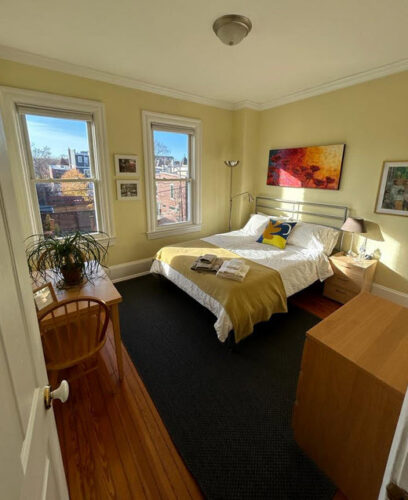
1. Provide musicians with a set of keys. Rehearsal schedules and their own professional and social life may be unpredictable. My husband and I have active personal and work lives, too. Nobody wants to spend time coordinating schedules just to open the front door. Once, we hosted a guest conductor who, because of his high profile, had a lot to do in the city over several days. This required him to change clothes frequently for rehearsals, concerts, business meetings, and social commitments. With his own key, he had complete independence and the peace of mind to come and go as he pleased.
2. Make sure their room is clean, attractive, uncluttered. It can be awkward to stay in a room filled with the bric-à-brac of a stranger’s life, so remove as many of your personal items as possible. Needless to say, the mattress should be in great condition and the bed freshly made. Not every potential host has a ton of extra space, but even a small room can serve the purpose well. In our house, the guest room has a queen-sized bed, a small table and chairs, a closet, and a dresser. No TV, but plenty of outlets, and windows that bring in morning light. In short, the guest room should be a place where you would enjoy staying for a few nights on a business trip.
3. Place a typed “house guide” in their room with essential information. A guest will need your cellphone number, Wi-Fi password, alarm codes, parking rules, things to do within walking distance, plus Metro stations, local grocery stores, and so on. When we started hosting, everyone was curious about our historic Bloomingdale neighborhood and asked about our 117-year-old house. We used to email all the information we thought they needed. But those emails seemed to get lost, deleted, or forgotten. We solved the problem by making an attractive page of important information and having it framed. Guests take a picture so they have it in their pocket.
Included in our house guide is a short list of recommendations for local restaurants, coffee shops, bars, the nearest pharmacy and dry cleaners, and walkable parks to stroll and relax. As we learn more about our visitor, we can get more specific. One guest, a tenor from Philadelphia, liked to jog in the morning. We told him about the city reservoir nearby, a popular running spot along the water with beautiful fall foliage. He was overjoyed.
4. Ask in advance about special items or restrictions. Many people have allergies or dietary requirements. Singers are especially sensitive to their environment. Upon request, we place a humidifier in the room for the dry winter months. We eventually bought a range of pillows to accommodate various sleepers. We don’t have pets, which helps. If we know a musician’s food preferences — vegetarian, vegan, nut allergies, etc. — we’ll do our best to accommodate them. Early in our hosting experience, an excellent continuo player stayed with us who was a vegan. One evening he returned very late and very hungry. Fortunately, we knew of a restaurant with vegan options that was open till 1 a.m. and would deliver!
5. They can eat alone: stock your pantry and fridge with snacks, teas, coffee, and “ready to eat” or “heat and eat” meals. Sometimes musicians skip meals during rehearsal or may finish rehearsals too late to buy food, so we’ve learned to keep healthy meals on hand. If you’re hosting singers, make sure you have good honey and sea salt on the shelf. Our guest room has a table and chairs if they must eat in their room, although we ask that, if possible, they eat in our kitchen or dining room.
6. They can eat with you: invite them to have meals with you — in the house or at a restaurant — but don’t impose yourself. Sharing food and drinks is perhaps the best way to get to know someone. On weekdays, we often extend an invitation for our guest to eat with us. We text them a low-key, no-pressure message in the afternoon, something like, “Hey, if you’d like to join us for dinner, we’ll add an extra plate.” Make it just as easy for them to accept as to decline — or, indeed, to change plans later. No worries, no questions asked.
It’s true that we also go out with many of our guests — D.C. has a wonderful restaurant scene, and it would be a shame to miss that. We don’t know a musician’s financial situation, so we don’t suggest high-priced meals. Generally, they pay for themselves if we all go out. Other times, an invitation like “We’ll treat you to brunch” lets them know what to expect. When going out for drinks, I usually buy the first round.
7. Provide an iron, steamer, and ironing board so that they can get their garments ready for the stage. This one is simple and essential. Plenty of hangers in the closet, too.
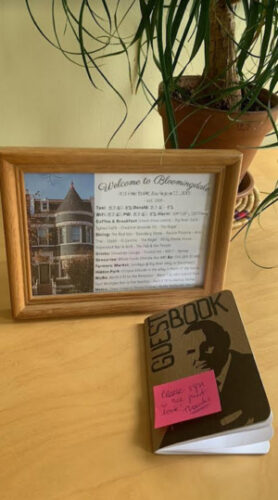
8.Assemble a small first-aid and personal grooming kit. Basic items that our guests have found useful include: a nail clipper and file (especially since these may not be allowed through airport security), a magnifier, band-aids and cloth tape, cotton swabs, alcohol, pins, toothbrush, toothpaste, soap, shampoo, and a hair dryer. Turns out that these items are also sometimes useful to perform minor adjustments or repairs on their instruments. Woodwind players, lutenists, and plucked instrumentalists have found these items helpful. By experience, we try to provide what they might need before they have to ask.
9. Be mindful of people’s personalities. Respect their need for privacy. This one is perhaps most important. For many musicians, the most off-putting aspect of staying in someone’s home is a lack of privacy. Traveling, rehearsing, and performing can be very stressful, and different people cope with pressure differently. At the same time, it can be lonely traveling and away from home. We try to strike a balance — let them know we’re here if they want someone to talk or eat with, but also give them as much privacy as our house allows.
10. Invite them to sign your guest book. Many musicians in the early-music community know each other. When we started hosting, we’d tell a guest that they were one of the first musicians to stay with us. Invariably, they’d ask “Who else was here?” Just as invariably, they were happy to know we’d hosted some of their friends and colleagues. From our perspective, it’s all about connecting and community. In fact, after some years of hosting musicians, word has gotten around…and now we are in high demand!

Toni Codinas, at left, is on the board of the Washington Bach Consort and is a former board member of Early Music America. He works in corporate strategy and is a native of Barcelona. He and his husband, Donald Gatlin, have lived in D.C.’s Bloomingdale neighborhood for 11 years.


